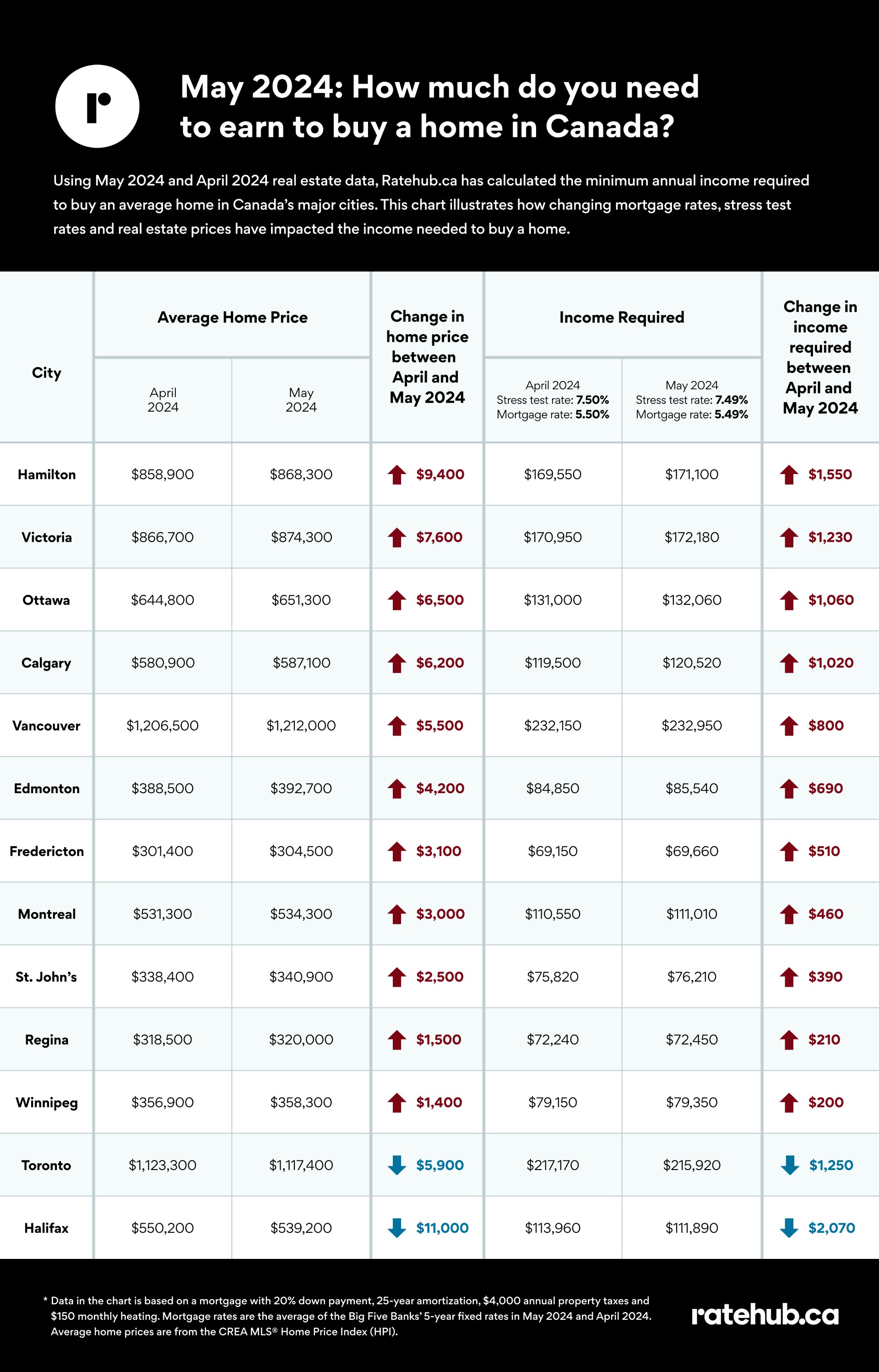Report shows the additional income Canadians need to keep up with surging home prices

Buying a home in Canada became more challenging in May as rising property values offset flat mortgage rates, according to the latest housing affordability study by Ratehub.ca.
The analysis, which calculates the minimum annual income required to purchase the average home across major Canadian cities, found that affordability worsened in 11 of the 13 markets studied compared to the previous month.
"Despite little upward pressure on the borrowing side – the average five-year mortgage rate remained fairly flat on a monthly basis at 5.49% compared to 5.5% in April – rising home values were steep enough to push affordability further out of reach for many," Ratehub mortgage expert Penelope Graham wrote in the report.
 In Hamilton, buyers now need to earn an additional $1,550 in income compared to April to afford the average home priced at $868,300, marking the largest increase among the cities analyzed.
In Hamilton, buyers now need to earn an additional $1,550 in income compared to April to afford the average home priced at $868,300, marking the largest increase among the cities analyzed.
Victoria followed closely, with buyers requiring $1,230 more in income as the average home price rose by $7,600 to $874,300.
Surprisingly, affordability improved within the City of Toronto, with buyers needing $1,250 less income to purchase the average home at $1,117,400, as the supply and demand imbalance during the spring market lowered prices by $5,900.
Halifax saw the most significant improvement, with the required income dropping by $2,070 based on an average home price of $539,200, a decrease of $11,000 from the previous month.
The mortgage stress test, which remains elevated at 7.49%, further compounds the affordability challenge for prospective homebuyers.
As the data predates the Bank of Canada's June rate cut, lower mortgage rates could potentially heat up home prices further in the coming months, according to Ratehub.ca.
"A number of real estate boards – including the Canadian Real Estate Association – are forecasting an increase in sales in the coming months, as buyers are encouraged by easing borrowing costs," the report noted.
With the central bank's key overnight lending rate now at 4.75%, further cuts in July or September could bring renewed urgency to the market, a phenomenon observed in previous rate cut cycles.
Make sure to get all the latest news to your inbox on Canada’s mortgage and housing markets by signing up for our free daily newsletter here.



